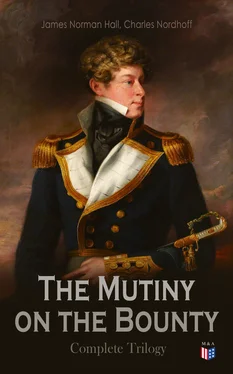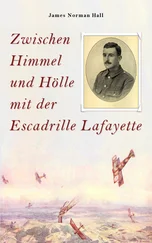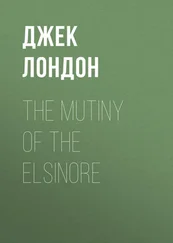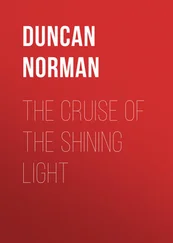On the fifteenth of August, 1790, our daughter Helen was born. The child was given Tehani’s name and long title, which in truth I cannot recollect, but I gave her my mother’s name as well. She was a lovely little creature, with strange and beautiful eyes, dark blue as the sea, and since she was our first-born, or matahìapo, her birth was the occasion for ceremonies religious and political.
A large enclosure had been fenced on the sacred ground behind Vehiatua’s family temple, and three small houses built within. The first was called “The House of Sweet Fern,” in which the mother was to be delivered of her child; the second was known as “The House of the Weak,” where mother and child would pass a fortnight afterwards; the third was called “The Common House” and had been built to shelter Tehani’s attendants. For six days after our little Helen was born, silence reigned on sea and land along the coast of Tiarapu; all of the commoners retiring into the mountain fastnesses, where they might converse, build fires for their cooking, and live in comfort till the restriction was over.
On the seventh day I was admitted into the House of the Weak, and saw my daughter for the first time. Vehiatua and I went together, for no man save Taomi, the priest, had set foot within the enclosure till that time. It was dark in the house, and for a moment I could scarcely make out Tehani on her couch of soft mats and tapa, nor the tiny newcomer, waving chubby fists at me.
Our child was three months old when Stewart and Peggy sailed around the island to visit us. They had a small daughter of their own, as I had learned some time before, and the two young mothers found in their children an inexhaustible subject of conversation. Stewart spent a week with us, and one day of the seven stands out in my memory.
It was still dark when I rose that morning, but when I emerged from my plunge into the river the fowls were beginning to flutter down from the trees. As I stood on the bank, breathing deep of the cool morning air, I felt a touch on my shoulder and found my wife beside me.
“They are still asleep,” she said; “you should see Helen and little Peggy, side by side! Look, there is not a cloud in the sky! Let us take a small canoe and paddle to Fenua Ino—the four of us, and the children, and Tuahu.”
We had often spoken of spending a day on the islet of Fenua Ino, a place I had never visited, and, knowing that Stewart would enjoy the trip, I assented readily. We chose a single canoe, stocked her with provisions and drinking nuts, and installed the two sleeping babies on soft tapa, side by side in the shell of a large sea-turtle, well polished and cleaned, and shaded with green coconut fronds. Tuahu, my brother-in-law, was a tall, powerful young man, a year older than I, and as pleasant a companion as I have ever known. He took his place in the stern, to steer us through the reefs, and set us a lively stroke. Stewart and I had long since become accomplished hands in a canoe, and our wives were strong active girls, able to wield a paddle with any man.
For five miles south from Tautira, the coast is sheltered by a reef at some distance from the land, and is perhaps the richest and most densely populated district in all Tahiti. This was the coast I had seen when the Bounty first approached the island, so long before. Then the reef ceases, and the Pacific thunders against the tall green cliffs called Te Pari—a wild region, uninhabited and believed to be the haunt of evil spirits. At the beginning of the cliffs, where the reef ended, was the small coral island, about half a mile from shore, where we planned to spend the day.
We spread our mats in the shade of a great unfamiliar tree, and Tuahu fetched our lunch and the turtle shell. Stewart called to his wife: “Bring the children, Peggy. Byam and I will keep an eye on them, and have a yarn while you and Tehani explore the island.”
Stewart and I stretched ourselves out comfortably in the shade. Our daughters slept in their odd cradle, starting a little from time to time as babies do, but never opening an eye.
“Byam, what do you suppose has become of Christian?” Stewart asked. “Sometimes I think that he may have killed himself.”
“Never! He felt too deeply his responsibility toward the others.”
“Perhaps you are right. By this time they must have settled on some island—I wonder where!”
“I have often puzzled over that question,” I replied. “They might have gone to one of the Navigators’ Islands, or to any of the coral islands we passed on the voyage north.”
Stewart shook his head. “I think not,” he said; “those places are too well known. There must be scores of rich islands still uncharted in this part of the sea. Christian would be more apt to search for some such place, where he would be safer from pursuit.”
I made no reply and for a long time we lay sprawled in the shade, our hands behind our heads. I felt deeply the lonely peace and beauty of the islet. Beyond the long white curve of the reef, a northerly breeze ruffled the Pacific gently. I groped in memory for a phrase of Greek and at last it came to me—“wine-dark sea.” Stewart spoke, half to himself, as if putting his thoughts into words: “What a place for a hermit’s meditations!”
“Would you like to live here?” I asked.
“Perhaps. But I would miss the sight of English faces. You, Byam, living alone among the Indians, do you never miss your own kind?”
I thought for a moment before I replied: “Not thus far.”
Stewart smiled. “You are half Indian already. Dearly as I love Peggy, I would be less happy at Matavai without Ellison. I’ve grown fond of the lad, and he spends half his time at our house. It’s a damned shame he had to meddle in the mutiny.”
“There’s not an ounce of harm in the young idiot,” I said; “and now he must sail away with Morrison and pass the rest of his days in hiding, on some cannibal island to the west. All for the pleasure of waving a bayonet under Bligh’s nose!”
“They’ll be launching the Resolution in another six weeks,” remarked Stewart. “Morrison has done wonders! She’s a staunch little ship, fit to weather anything.”
Our wives were approaching us, followed by Tuahu, who carried a mass of sweet-scented flowers which they had woven into wreaths for us.
One flower in particular, in long sprays and wonderfully fragrant took my fancy. It was unknown on Tahiti, and our companions were trying to recall its name.
“It is common in the low islands east of here, where the people eat man,” said Tuahu; “I saw hundreds of the trees in Anaa, when I was there last year. They have a name for it in their language, as we have in ours, but I forget both.”
“Tafano!” exclaimed Tehani, suddenly.
“Aye, that’s it!” said her brother, and I made a note of the word for my dictionary.
We fetched the baskets of food for the girls, and retired to a little distance, Indian fashion, to eat our own lunch. When it was over and we were together once more, in the shade, Tuahu recounted the legend of the islet.
“Shall I tell you why no men live here?” he began. “It is because of the danger at night. Several times in the past men have tried to sleep here, out of bravado, or because they did not know. All have crossed to Tahiti in the morning silent and dejected, and died soon after, raving mad. Since the very beginning, a woman has come here each night when the sun has set. She is more lovely than any mortal, with a melodious voice, long shining hair, and eyes no man can resist. Her pleasure is to seduce mortal men, knowing that her embraces mean madness and death.”
Stewart winked at me. He plucked two blades of grass, a long and a short, and held them out. “Come,” he said banteringly, with a glance at the girls, “we’ll draw to see who stops the night.”
Читать дальше











